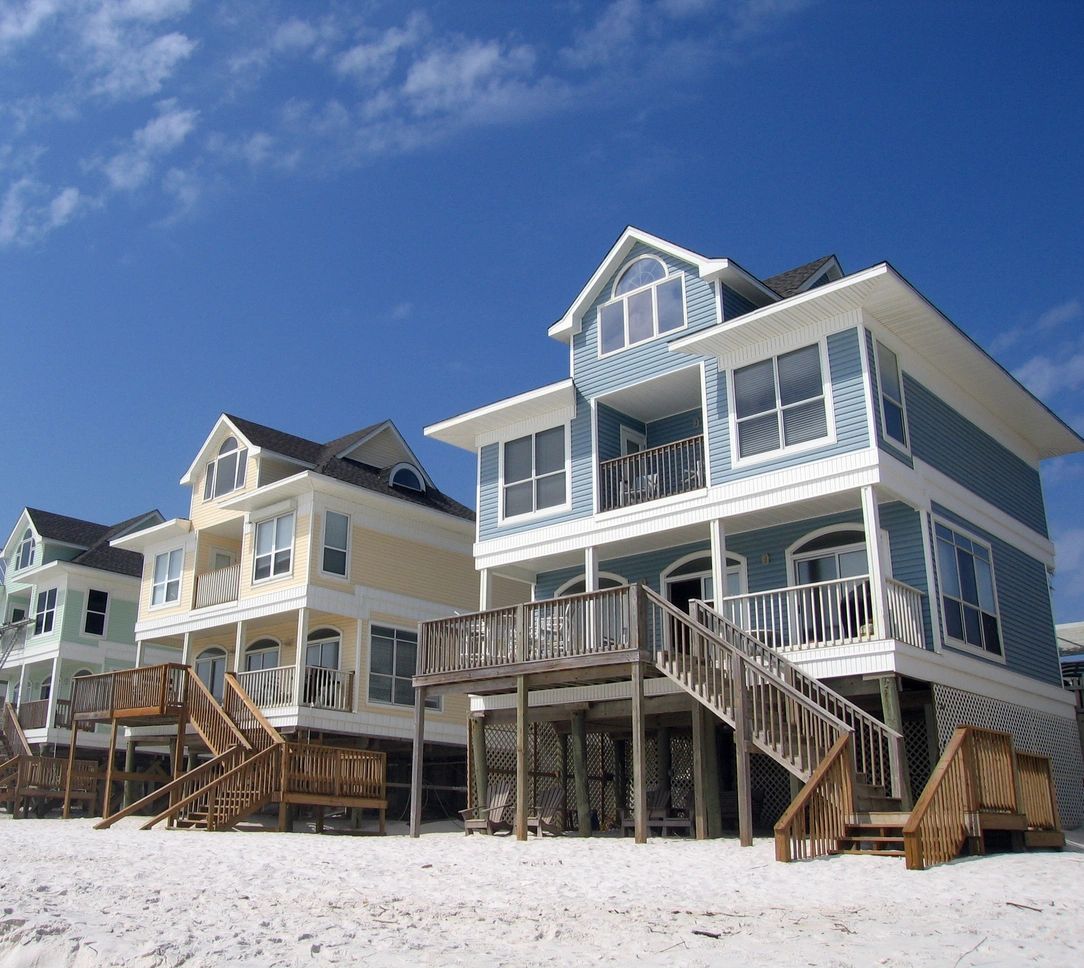
Hard Money Bridge Loans For Real Estate Investors That Value Speed
- Up to 75% LTV
- Close In 2 Weeks Or less
- 0 Point Program & Deferred Point Program Available
- No Appraisal Needed For Loans Under $1M
- Direct Lender, No Hidden Fees
- No Pre-Payment Penalty
- Available In 47 States
Bridge Loans for Real Estate Investors: Fast, Flexible Funding to Seize Opportunities
At Remic Investments, we understand that timing is everything in real estate. Whether you’re looking to secure a new investment property, quickly close on a deal, or fund renovations before permanent financing kicks in, our Bridge Loans provide the fast, flexible capital you need to act decisively. Designed specifically for real estate investors, bridge loans help you close the gap between buying and selling, allowing you to maximize opportunities in a competitive market. With streamlined approvals and terms tailored to your unique investment strategy, Remic Investments is your trusted partner in turning quick opportunities into lasting profits.
Our bridge loans are available for both short-term cashout refinances and purchases, giving you the liquidity needed for a wide range of scenarios. Whether you’re rehabbing a property to increase its value before selling, pulling equity from an existing asset to invest in new projects, or quickly closing on a property before securing long-term financing, bridge loans offer the speed and flexibility that traditional financing can’t. These loans are ideal for investors looking to reposition properties, fund renovations, or take advantage of time-sensitive opportunities.
- Loan Amount Up to $3 Million
- Loan To Value Up To 75%
- Loan Types Short Term Purchase, Rate/Term Refinance, Cash Out
- Property Types SFR 1 – 4 Units, PUD, Condo, Non-Warrantable Condo
- Term 12 – 18 Months Interest Only
- 0 Point Option? Available
- Deferred Point Option? Available
- Pre-Payment Penalty? None
- Closing Timeline 10 Days Or Less
Same Day Prequalification
A Comprehensive Guide to Bridge Loans for Real Estate Investors
For real estate investors, having access to fast and flexible financing can mean the difference between closing a deal or missing out on a lucrative opportunity. One of the most versatile tools available to investors is the bridge loan. These short-term loans are designed to “bridge the gap” between buying and selling properties or securing permanent financing. In this guide, we’ll explore the key aspects of bridge loans, how they differ from conventional loans, various investor use cases, and how to choose the right lender to meet your real estate financing needs.
What is a Bridge Loan?
A bridge loan is a short-term financing solution that real estate investors use to cover the period between purchasing a property and either securing long-term financing or selling the property. Bridge loans typically have terms ranging from 6 to 24 months, offering investors quick access to capital that enables them to act swiftly on investment opportunities.
Unlike conventional loans, which are designed for long-term financing, bridge loans are meant to fill a temporary need. The goal is to provide the investor with quick funds, with the expectation that the loan will be repaid through the sale of the property or a refinance into more permanent financing.
Key Differences Between Bridge Loans and Conventional Loans
While both bridge loans and conventional loans can be used to finance real estate transactions, they differ in several fundamental ways. Here’s a breakdown of the key distinctions:
1. Loan Term Length
One of the most significant differences between bridge loans and conventional loans is the loan term length. Conventional loans, such as mortgages, typically have terms of 15 to 30 years. These loans are structured for borrowers who plan to own the property for the long term and make regular monthly payments over an extended period.
Bridge loans, on the other hand, are short-term loans, usually ranging from 6 to 24 months. They are designed to provide temporary financing until the borrower can sell the property, complete renovations, or secure long-term financing. This makes bridge loans ideal for real estate investors who need quick access to capital for a specific project or investment opportunity.
2. Speed of Approval and Funding
Another critical difference between bridge loans and conventional loans is the speed of approval and funding. Conventional loans, especially mortgages, typically involve a lengthy application process that includes credit checks, income verification, property appraisals, and underwriting. This process can take several weeks to months to complete, which may not be fast enough for investors who need to act quickly in competitive real estate markets.
Bridge loans, by contrast, are designed for speed and flexibility. Lenders like American Heritage Lending can approve and fund bridge loans within a few days to 2 weeks, allowing investors to quickly close on properties, complete projects, or take advantage of time-sensitive opportunities. This accelerated timeline is a major advantage for real estate investors who need to move quickly to secure deals.
3. Qualification Criteria
Qualification for conventional loans typically relies heavily on the borrower’s personal financial profile, including credit scores, income documentation, and debt-to-income (DTI) ratios. Borrowers are expected to have stable, documented income and strong credit history to qualify for favorable terms.
Bridge loans, however, focus more on the value of the property and the borrower’s exit strategy (such as selling the property or refinancing). Lenders are more concerned with the investor’s ability to repay the loan through a planned sale or long-term financing. This means that borrowers with less-than-perfect credit or non-traditional income streams can still qualify for bridge loans, as long as the investment property presents a viable opportunity.
4. Interest Rates and Costs
Because bridge loans are short-term, they typically come with higher interest rates than conventional loans. While conventional mortgage rates may range from 6% to 8%, bridge loan rates can range from 8% to 12%, depending on the lender and the specifics of the project. The higher interest rates reflect the lender’s increased risk and the short-term nature of the loan.
In addition to higher interest rates, bridge loans may also include higher fees, such as origination fees or points. However, the flexibility and speed offered by bridge loans often outweigh these costs for investors who need fast access to capital to complete a deal or fund renovations.
Investor Use Cases for Bridge Loans
Bridge loans are incredibly versatile and can be used in a variety of scenarios. For real estate investors, these loans can help fund both acquisitions and renovations, provide liquidity for short-term cashouts, or act as a financing bridge until long-term funding is secured. Here are some of the most common use cases for bridge loans in real estate:
1. Acquiring Investment Properties Quickly
In competitive real estate markets, opportunities often move fast. Investors need to act quickly to secure a property before it’s sold to another buyer. Traditional financing may take too long to secure, causing investors to miss out on lucrative deals.
A bridge loan provides the quick financing investors need to acquire a property before it’s gone. For example, if an investor finds a distressed property with significant potential for value appreciation, they can use a bridge loan to purchase the property immediately. Once the property is acquired, the investor can either sell it for a profit or refinance it into a long-term loan.
2. Renovating and Flipping Properties
Bridge loans are a popular financing option for real estate investors involved in fix and flip projects. Investors often need short-term financing to purchase and renovate a property before selling it for a profit. A bridge loan covers both the acquisition and renovation costs, allowing the investor to improve the property and increase its value.
Once the renovations are complete, the investor can sell the property, repay the loan, and capture the profit. The short-term nature of bridge loans aligns perfectly with the timeline of most fix-and-flip projects, which typically last between 6 and 12 months.
3. Financing Transitional Properties
Investors may also use bridge loans to finance properties that require additional time or investment before they can secure long-term financing. For instance, an investor may purchase a property that needs stabilization (e.g., securing tenants for a commercial property or renovating a multifamily building) before it becomes eligible for traditional financing. A bridge loan provides the necessary funds to complete these initial improvements.
Once the property is stabilized and generating sufficient income, the investor can refinance into a permanent loan or sell the property for a profit. This is a common strategy for investors who focus on value-add real estate, where properties are purchased below market value, improved, and then either held for cash flow or sold.
4. Short-Term Cashout Refinancing
Sometimes investors need liquidity quickly but don’t want to sell an asset. In this case, a bridge loan can be used for short-term cashout refinancing. This allows the investor to extract equity from an existing property to use for other investments or personal needs.
For example, an investor who owns a rental property with significant equity may use a bridge loan to access that equity and fund the purchase of another investment property. Once the new property is stabilized, the investor can refinance both properties into long-term loans with more favorable terms.
5. Bridge to Permanent Financing
One of the most common use cases for bridge loans is as a temporary financing solution while investors work to secure long-term funding. For example, an investor may use a bridge loan to purchase a property, complete necessary renovations, and prepare the property for permanent financing. Once the property is ready, the investor can refinance into a conventional loan or a DSCR (Debt Service Converage Rato) Loan, which is based on the rental income of the property.
This strategy allows investors to act quickly on acquisition opportunities while still securing long-term, stable financing after the initial improvements have been made.
Choosing the Right Bridge Loan Lender
Not all lenders are created equal, and selecting the right lender for your bridge loan can significantly impact the success of your investment. Here are a few key factors to consider when choosing a lender for a bridge loan:
1. Experience in Real Estate Lending
Look for lenders who specialize in real estate financing and have a deep understanding of the unique challenges and opportunities that come with bridge loans. American Heritage Lending has extensive experience working with real estate investors, offering flexible bridge loan options tailored to each investor’s needs.
2. Speed of Funding
Bridge loans are often used when timing is critical, so it’s essential to choose a lender that can approve and fund the loan quickly. American Heritage Lending is known for its fast turnaround times, often approving and disbursing funds within 10 days, giving investors the speed they need to act on time-sensitive opportunities.
3. Flexible Terms
Every real estate investment is different, and your bridge loan should be flexible enough to accommodate your specific project. Look for lenders that offer customizable loan terms, including loan amounts, interest rates, and repayment schedules. American Heritage Lending offers flexible loan structures that can be tailored to meet your unique investment strategy.
4. Clear Exit Strategy Support
Your bridge loan lender should also help you plan for a clear exit strategy—whether that’s through the sale of the property, a refinance into permanent financing, or another investment strategy. Remic Investments provides expert guidance throughout the loan process, helping you secure both the short-term funding you need and the long-term plan to repay the loan.
In conclusion, bridge loans are a powerful financing tool for real estate investors looking for quick, flexible capital to acquire, renovate, or reposition properties. Whether you’re flipping houses, funding a short-term project, or securing transitional financing, a bridge loan offers the speed and adaptability needed to seize opportunities in the ever-changing real estate market. Remic Investments offers tailored bridge loans designed to meet the unique needs of real estate investors, helping you turn opportunities into profitable investments.
